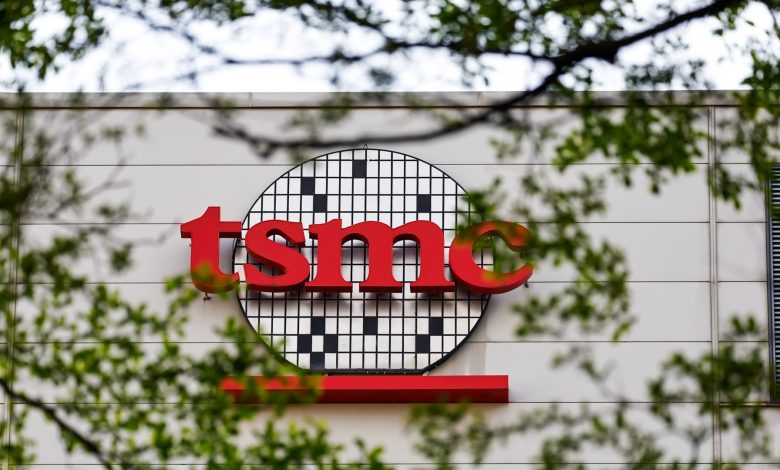TSMC first-quarter profit tops estimates, rising 60%, but Trump trade policy threatens growth

Taiwan Semiconductor Manufacturing Company (TSMC) headquarters in Hsinchu, Taiwan, on April 16, 2025.
Anadolu | Anadolu | Getty Images
Taiwan Semiconductor Manufacturing Company on Thursday beat profit expectations for the first quarter, thanks to a continued surge in demand for AI chips.
Here are TSMC’s first-quarter results versus LSEG consensus estimates:
- Revenue: $839.25 billion New Taiwan dollars, vs. NT$835.13 billion expected
- Net income: NT$361.56 billion, vs. NT$354.14 billion
TSMC’s net income increased 60.3% from the same period last year to NT$361.56 billion, while net revenue in the March quarter rose 41.6% to NT$839.25 billion.
Advanced technologies, defined as 7-nanometer and less, accounted for 73% of total wafer revenue, the company said.
The world’s largest contract chip manufacturer has benefited from the AI boom as it produces advanced processors for clients such American chip designer Nvidia.
However, the company faces headwinds from the trade policy of U.S. President Donald Trump, who has placed broad trade tariffs on Taiwan and stricter export controls on TSMC clients Nvidia and AMD.
Semiconductor export controls could also be expanded next month under the “AI diffusion rules” first proposed by the Biden administration, further restricting the sales of chipmakers that use TSMC foundries.
Taiwan currently faces a blanket 10% tariff from the Trump administration and that could rise to 32% after the President’s 90-day pause of his “reciprocal tariffs” ends unless it reaches a deal with the U.S.
As part of efforts to diversify its supply chains, TSMC has been investing billions in overseas facilities, though the lion’s share of its manufacturing remains in Taiwan.
In an apparent response to Trump’s trade policy, TSMC last month announced plans to invest an additional $100 billion in the U.S. on top of the $65 billion it has committed to three plants in the U.S.
On Monday, AMD said it would soon manufacture processor chips at one of the new Arizona-based TSMC facilities, marking the first time that its chips will be manufactured in the U.S.
The same day, Nvidia announced that it has already started production of its Blackwell chips at TSMC’s Arizona plants. It plans to produce up to half a trillion dollars of AI infrastructure in the U.S. over the next four years through partners, including TSMC.
Taiwan-listed shares of TSMC fell nearly 1%. Shares have lost over 20% so far this year.



